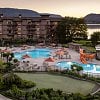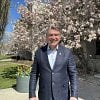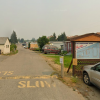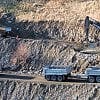
All letters to the editor published by KelownaNow reflect only the opinions of the readers who submit them, and not necessarily those of KelownaNow or its staff. Letters can be submitted to news@kelownanow.com
Dr. David Black is an associate professor with the School of Communication and Culture at Royal Roads University in Victoria. On CBC Radio's "BC Today" program (Sept. 28/22) Black talked about "the incumbency effect," which is the likelihood of an incumbent councillor or mayor winning again.
He said this effect is highest at the municipal level, relative to the provincial and federal.
Black continued: "Eighty per cent of the time, eight in 10 times, a councillor or mayor who chooses to run again for that position will win."
My take on the Oct. 15/22 Kelowna municipal election results:
Tom Dyas (21,328): Dyas defeated two-term mayor Colin Basran (10,905) by a two-to-one margin. After the election, Dyas said on CBC Radio (Oct. 19/22) that there are "many members of the community who just feel that they haven't been able to have their voice heard."
Ron Cannan (17,152 votes): Not surprised Cannan received the most votes. He was first elected to city council in 1996 for a three-year term, re-elected twice, serving a total of nine years (1996 to 2005). Cannan was also a popular Conservative MP for Kelowna-Lake Country, winning elections in 2006, 2008, and 2011. Both he and former Global Okanagan TV news anchor Rick Webber won a seat on council primarily on name recognition.
Loyal Wooldridge (14,700 votes): Incumbent. From his July 18/22 press statement: "I’ve championed a community plan that focused on urban areas while advocating for the preservation of Kelowna’s environment." Yet on Aug. 22/22, Wooldridge voted against the resolution to change the future land use of Kelowna Springs Golf Course from industrial to private recreational. How is this advocating for the preservation of Kelowna’s environment?
On Aug. 9/22 Wooldridge told KelownaNow: "We've done a lot of great work when it comes to homelessness with housing almost 400 people."
Yet Colin Basran's campaign flyer states: "Built housing for 312 people who otherwise would be homeless." So, is the actual number closer to 300 or 400 people?
Wooldridge has been a loyal Basran fan from the get-go, but after seeing the photo of Wooldridge posing for pictures with mayor-elect Dyas on election night, I can imagine Wooldridge saying to the crowd: "Colin who?"
Rick Webber (11,795 votes): In a July 7/22 news article, Webber said he would fund his own campaign, spending the maximum $2,500 a candidate is allowed to use of his own money. He also said he wouldn't solicit or accept any financial donations. After the election, Webber commented in an Oct. 23/22 news article that he spent less than $2,400 during the month-long campaign. I wonder how much Webber paid Global Okanagan Television (his former employer) to create his 15-second campaign commercial, plus what he paid to have it broadcast many times on its various daily news programs throughout the campaign? For example, the cost to broadcast a 15-second commercial three times in one week on "Global News at 5 Okanagan" is $612.87 ($204.29 x 3).
Gord Lovegrove (11,609 votes): He came ninth in the 2018 election: 1,609 votes behind Wooldridge. And, like Wooldridge, was one of six candidates recommended by a group called Liveable Kelowna. Lovegrove has proposed a passenger tram-train running along Hwy 97 between Osoyoos and Kamloops, which he says would be half the cost of highways.

Mohini Singh (11,585 votes): Incumbent. On May 9/22 Singh said: "I do want to voice my concern about the number of high-rises that we are approving," yet 10 weeks later voted to approve the 46-storey UBCO Tower. Her campaign signs included the slogan, "Your Trusted Voice." Local developers have trusted her to approve their high-rise projects for the downtown core.
Luke Stack (11,421 votes): Incumbent. Stack has been a councillor for the past 14 years (since 2008). By the time of the next election, Stack will have been on council for 18 years.
On Jan. 10/22 he said: “I don’t know if we could have done more" (to improve housing affordability). "The reality is that the market forces are just so big that we can’t out-policy the market." Council candidate Susan Ames said there needs to be a city policy that requires 30 per cent of new buildings to be affordable.
Charlie Hodge (11,374 votes): Incumbent. Hodge isn't afraid to vote against the group. He said in his Sept. 9/22 KelownaNow interview: "I've been called lone wolf all my career... I represent the general public."
In a Sept. 21/22 news article, Stack said: "Lone wolves do not make effective councillors".
Hodge supports the most opulent of the five building options regarding Parkinson Recreation Centre, at an estimated cost of $166 million. Hodge: "The Parkinson Recreation is my number one project really." I wonder how many council members also prefer this option. Will the five options be put to a city-wide assent vote? (aka referendum)
See: https://kelownapublishing.escribemeetings.com/filestream.ashx?DocumentId=780 and
https://www.kelowna.ca/our-community/planning-projects/parkinson-recreation-centre-redevelopment
Maxine DeHart (11,218 votes): Incumbent. DeHart has as much or even more name recognition than even the mayor, due to her weekly community column "Straight from DeHart," and weekly interview on AM1150. Which do you think the public knows better? a) the content of her columns or b) her voting record on council?
Why wasn't incumbent Gail Given re-elected? Some reasons may include: publicly endorsing Basran in a campaign video; voting against the resolution to change the future land use of Kelowna Springs Golf Course from industrial to private recreational; and attacking the motivations of those who want to see a ward system for city council (KelownaNow interview, Aug. 25/22).
In Kelowna there were 32 councillor candidates competing for eight seats. The less popular candidates siphoned off votes from the more popular ones. With far fewer candidates to choose from, I think Given would still have lost (and possibly DeHart as well), and replaced by two of the following: Susan Ames, Peter Truch, Davis Kyle, Noel Wentworth.
There will only be two women among the eight councillors when Kelowna’s new city council is sworn in at their Inaugural Meeting (Nov. 7). The Liveable Kelowna group -- made up of nine men and two women -- ignored the candidate who is probably the most qualified person to be on council: Susan Ames, who has a PhD in Resource Management and Environmental Studies with a specialty in climate change, MSc in soil science, and BSc in biology. Ames has over 30 years experience as an environmental consultant in both agriculture and in the mining industry. She wants to see the return of the Citizens' Patrol program, and police having a regular beat in order to build relationships with residents in the various communities and business centres.
Mayor-elect Dyas also said that as long as councillors are in agreement, he would like to initiate and complete a "value-added" audit of City Hall expenses and spending programs within the first year, to see if there is a need for a particular item or not. Since Basran was first elected mayor in 2014, there's been a 30 per cent municipal tax hike. In 2014, the city had 716 full-time employees; at present it's a full-time workforce of well over 1,000 employees. In April 2021, the city created a $400,000, two-year position for Chris Ray called "Champion of the Environment". How many staff are currently employed in the communications department?
Only about 30 per cent of eligible Kelownians voted in this election. What's the likelihood of the present or a future BC government introducing legislation that makes municipal voting mandatory for voters 18-years-old and older? Mandatory voting in local, state and federal elections has worked well in Australia. From the Oct. 18/19 news article: "In Australia, voting is mandatory, easy and often fun. Is there a lesson for Canada?":
















